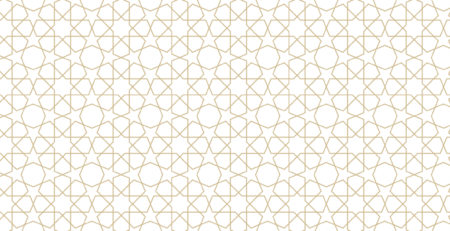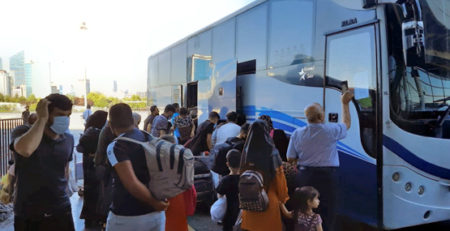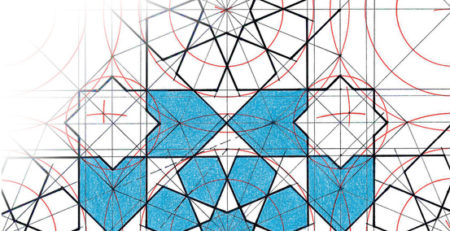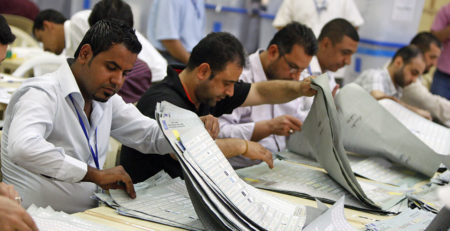Violence in Moroccan Universities: A problem worth addressing

On 19 May 2018, in the University of Ibn Zohr in Agadir, violent confrontations between pro-independence Sahrawi and Amazigh Cultural Movement students led to the murder of Abderrahim Badri, a 24-year-old undergraduate law student. Another 30 students were arrested in the following days, as young people across the country struggled to come to terms with yet another unnecessary death in Moroccan universities.
On 19 May 2018, in the University of Ibn Zohr in Agadir, violent confrontations between pro-independence Sahrawi and Amazigh Cultural Movement students led to the murder of Abderrahim Badri, a 24-year-old undergraduate law student. Another 30 students were arrested in the following days, as young people across the country struggled to come to terms with yet another unnecessary death in Moroccan universities[1].
Violence between students’ groups in Moroccan universities is significant, widespread and inherently linked with structural conditions in the country. Structural violence denies secure and dignified living conditions and prevents the realisation of individual and collective goals and, in Morocco, structural violence goes hand in hand with direct force. The current situation in the country is deeply-affected by a socio-political phenomenon that goes unnoticed by outside observers, despite the immediate effects it has on a large and critical constituency for the future of the country: university students.
In March 2017, the Cordoba Foundation of Geneva began an inclusive mediation process for a diverse group of politically-affiliated Moroccan students. With local and international experts, participants have openly discussed the causes and consequences of this conflict, developing shared understanding and constructive solutions for reducing the violence that mars further education. The CFG has provided Arabic-language capacity-building in conflict transformation theory and practical skills, supporting participants in the development of peace-promotion abilities. This article’s analysis reflects and reports on the findings of this pilot mediation process.
Morocco’s university groups are characterised by their ideologies, identities and their links with political parties and movements at the national level. There are numerous tensions both within and between ideological and identity groups. Student factions dominate certain faculties or campuses around the country and claim control over them. They trumpet their differences by decorating the physical spaces of the universities with their own pictures, quotes and events. Narratives of victimhood and the logic of revenge feature strongly in these groups, as seen in the portraits of Amazigh, Islamist, Leftist or Sahrawi martyrs that line university corridors and cafeterias; depending on which party controls the space. Too often, the outcome of these divisions is wanton violence against other students.
Tadjdid Tolabi (Students’ Renewal), is one of the largest and most organised, and the youth wing of the largest Islamist political party, Al Adala Wal Tanmia (Justice and Development Party). It has an oscillating relationship with another religiously-inspired students’ group, linked to Al Adl Wal Ihsane (Justice and Beneficence), an influential Islamist opposition movement that was the main force behind the 20 February 2011 uprisings across Morocco.
Ad-Dimoqrateen At-Taqadumeen (Progressive Democrats) is a Leftist faction with links to the Unified Socialist Party; just as At-Tali’ia Ad-Dimoqratia (the Democratic Vanguard) is affiliated with the radical Leftist opposition party, the Democratic Path. These political parties participate in organised opposition politics in Morocco, so some hard-line Marxist groups disparage them as sell-outs. Al Barnamaj Al Marhali (The Conjunctural Program) and Al Qa’ideen (The Base Program), are two radical Marxist factions that operate in different university campuses without any affiliation to mainstream political parties.
Many of Morocco’s Leftist students’ groups and political parties originate in Ilal Amam (Forward), a powerful Communist movement which was founded in 1976 but subsequently destroyed by King Hassan II in the context of the Cold War and his repression of all opposition (including the National Union of Moroccan Students (UNEM), which was a centre of Leftist political organisation). Today, most Moroccan Leftist parties have been recognised as legitimate and have adopted a contemporary political struggle from within the organs of the modern state. However, some radical students’ groups, including the Conjunctural Program and students affiliated with the Base Program, constitute an isolated fringe movement within Moroccan political society. The Conjunctural Program espouses the use of force as an integral part of its ideology – perhaps as a response to the years of oppression suffered by this group. From the perspective of students on the Left and among religious students’ factions, the Conjunctural Program is the group behind violence in universities. From their side, some radical Leftist students denounce the perceived chauvinism of the pro-Independence Sahrawis and Amazigh Cultural Movement as the most dangerous factor in university campuses across the country.
Sahrawi pro-Independence groups are perceived to be loosely affiliated with the Polisario Front and its government-in-exile, the Sahrawi Arab Democratic Republic, because of their political position on self-determination. The Amazigh Cultural Movement is affiliated with the broader national movement for the recognition of Amazigh language, culture and history. Around the country, radical student supporters and members of these groups have tense relations with almost all other groups – they consider Sahrawi students as pan-Arabists, negating Amazigh identity; they oppose all forms of religious groups, leading to tension with Islamist students; and they advocate for identity-based forms of organisation, contrary to the internationalist Marxist students. Outside observers say the two main lines of tension in Moroccan universities are 1) between Sahrawis and Amazigh and 2) between Islamists and Leftists/Secularists.
Political aims, ideologies and identities undoubtedly contribute to heightening the tensions that can lead to violence between Moroccan university factions, and the devastating case of Abderrahim Badri is not exceptional. Since the end of 2017, local press reported that the university of Moulay Ismail in Meknes was the scene of two attempted homicides between students of the Amazigh Cultural Movement and the Conjunctural Program. In the same month, students affiliated with the same factions clashed again in a university in Fez, demonstrating how violent incidents can spread and multiply through the logic of exacting revenge.
Fez, home of the world’s first university, has been the setting for several violent acts between university students, dating back to the early 1990s when Leftist student Benaïssa Aït El Jid was allegedly murdered by members of Tajdid Tolabi[2]. More recently, 21-year-old Abderrahim El Hasnaoui, of Tadjid Tolabi, was killed in April 2014 by a group of Leftist students armed with knives[3]. The most recent clashes between Moroccan students’ factions took place on 7 March 2018, when a confrontation between Al Adl Wal Ihsane students and the Conjunctural Program left tens of wounded young people and widespread destruction to university property and adjacent residential areas. Local reports stated that students used stones, bicycle chains and iron tools to do the greatest damage possible to each other. These clashes were so devastating that the centre of Fez, and the main road to its international airport, were closed until police re-established control.
A territorial dispute between these factions, who control different campuses of the same university, was sparked by each aiming to prevent the other from carrying out political activities in their respective spaces. This censorship reflects the contrasting ideologies of these Islamist and Secularist students, separated by radically different positions on key social, political and cultural issues. Fez universities see some of the highest levels of violence between Islamist and Leftist/Secular groups, dating back to the mid-2000s and making it one of the worst areas of student violence in the country.
Violence between university students reflects the poverty of Moroccan university education, which leaves its graduates ill-equipped to manage their differences in a marketplace of ideas. Some young people worry that this phenomenon heralds a generation of victims and perpetrators, scarred by their experiences of violence and punishment alike[4].
The widely-held perception of Moroccans is that the state and its successive governments have ignored and remained passive on the issue; a stance which has undoubtedly contributed to the proliferation of these incidents[5]. A report launched by the National Council for Human Rights in 2014 named the state as a determining actor in the violence in campuses because of the excessive violence of police officers, the pauperisation of the student population and the politically-motivated favouritism of certain students over others[6].
Aside from the state, there is also a need for political parties and movements to engage with and include student’ leaders, rather than using them just to shore up political influence in universities. These young men and women have the right to express their political vision for the future of the country and to fight for their interests within the society. This kind of leadership role for university activists can also be encouraged by civil society actors and organisations, particularly for students’ groups with no political affiliation. Civil society’s political independence can be a positive factor for facilitating communication between factions who are not able to open channels of communication or who reject engagement with other political groups.
A first step to overcoming the mistrust between student factions would be the facilitation of safe spaces for their representatives to meet, to dialogue, and to discuss the root causes, shape and potential future of fraught student relations in Moroccan universities. These meetings could include diverse representatives of students’ groups (across regional, cultural and ideological divides), or focus on intra-group relations – particularly in the case of disparate Leftist groups who have struggled to develop a unified contemporary discourse. These dialogues could be about issues that concern all student activists, for example the divisive legacy of the UNEM, which is controlled by students affiliated with Al Adl Wal Ihsane today. Many Moroccan students have advocated for creating a code of ethics enshrining the values developed and agreed by students. However, this document would have to be the result of a comprehensive process of dialogue on the main issues underlying student violence, to have any impact.
One cross-ideological student initiative could be to lobby universities administrations to install a kind of Early Warning, Early Response system to identify potential student conflicts and to defuse them in a fair and transparent way. Some student-led mediation initiatives have already been attempted in Moroccan universities, but more support is needed for these dialogues to facilitate change on the ground. An inclusive, balanced and participative university space can be the only solution to this extreme violence – be it inspired by religion, identity or ideology.
[1] “إثر مقتل طالب بجامعة أكادير.. الأمن يوقف 30 طالبا وبرلماني يسائل وزير الداخلية”
http://lakome2.com/politique/38457.html
[2] “Left wing activists call for re-opening of investigation over the assassination of their comrade Ait El Jid, and point the finger at some islamists affiliated to governing party.”
http://www.african-bulletin.com/7002-left-wing-activists-call-for-re-opening-of-investigation-over-the-assassination-of-their-comrade-ait-el-jid-and-point-the-finger-at-some-islamists-affiliated-to-governing-party.html
[3] “L’université de Fès secouée par le meurtre d’un étudiant.”
http://www.jeuneafrique.com/164140/politique/l-universit-de-f-s-secou-e-par-le-meurtre-d-un-tudiant/
[4] These opinions were shared during a workshop about violence in Moroccan university campuses in March 2017. For the workshop’s report in French, see:
http://cordoue.ch/images/pdf/workshops/CWR_ReductViolence-UniMaroc_Istanbul-mar2017_FR.pdf
[5] “من قتل الطالب بدري؟!”
http://lakome2.com/opinion/38681.html
[6] « La violence en milieu étudiant sous la loupe du CNDH »
https://www.medias24.com/NATION/POLITIQUE/12744-La-violence-en-milieu-etudiant-sous-la-loupe-du-CNDH.html










